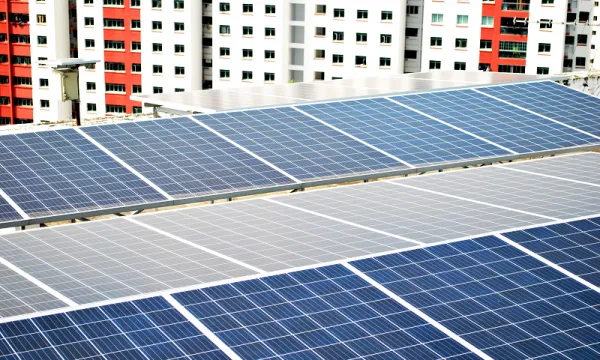
Renewable energy capacity to nearly double in ASEAN by 2025: HSBC
Technological advancement and lower costs of renewables will drive this expected growth.
Renewable energy capacity will nearly double in the ASEAN region by 2025, with Vietnam leading the way, according to a report by HSBC Global Research.
The report said that the key six countries in ASEAN – Vietnam, the Philippines, Thailand, Singapore, Malaysia and Indonesia – added around 24GW of renewable capacity over the last five years.
“These capacity additions happened mainly in Vietnam as the government rolled out attractive feed-in tariffs and other favourable policies related to renewables to attract capital for investment. A high proportion of these investments in Vietnam happened in Q4, 2020, given the end of 2020 was the deadline to finish these projects and benefit from the favourable tariffs.” HSBC said.
HSBC predicts that renewable capacity will grow to 65 GW in 2025 from 2020’s 36 GW, and will reach 89 GW by 2030.
Vietnam stands as Number One in ASEAN in terms of current regulation and current project returns on renewables. The country also stands as the leading investment destination for renewables.
The doubling of the energy capacity is also boosted by technological advancements that continue to lower the costs of renewables. Global wind turbine price has dropped by
22% and 41% compared to 2015 and 2010; while solar module costs has fallen by 52% and 89% vs 2015 and 2010.
HSBC said that return of new renewables projects should improve against 2020 in general, because it believes that the declining cost is a more sustainable factor.
“In 2025, we estimate the equity IRR for solar and wind in the region to range from 11.9-15.8% and 9.4-14.6% respectively. Overall, the returns range from low to mid double digits and look very close between countries. Assuming a more favourable tariff policy, renewables in Indonesia also look viable in terms of returns,” HSBC said.








![Cross Domain [Manu + SBR + ABF + ABR + FMCG + HBR + ]](https://cmg-qa.s3.ap-southeast-1.amazonaws.com/s3fs-public/styles/exclusive_featured_article/public/2025-01/earth-3537401_1920_4.jpg.webp?itok=WaRpTJwE)
![Cross Domain [SBR + ABR]](https://cmg-qa.s3.ap-southeast-1.amazonaws.com/s3fs-public/styles/exclusive_featured_article/public/2025-01/pexels-jahoo-867092-2_1.jpg.webp?itok=o7MUL1oO)









 Advertise
Advertise


